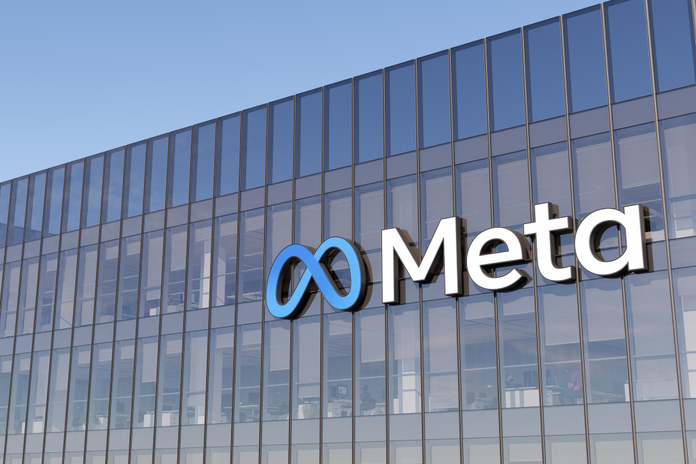Meta Platforms, Inc. (NASDAQ:META), the parent company of Facebook, Instagram, and WhatsApp, continues its focus on restructuring as it implements another round of layoffs. This move affects employees across various teams, including WhatsApp, Instagram, and its virtual reality division, Reality Labs. The Meta layoffs are part of the company’s broader effort to align its resources with long-term strategic goals.
In this article, we will examine the impact of these layoffs on Meta’s business, the teams affected, and what this realignment signals for the company’s future direction.
Meta’s Strategic Shift: Why Layoffs Are Happening
The recent Meta layoffs are part of the company’s ongoing restructuring to focus on efficiency and profitability. A Meta spokesperson confirmed that the company is making these changes to realign with long-term goals and a location-based strategy. While the exact number of employees impacted has not been disclosed, the layoffs span several teams, including the key messaging service WhatsApp and the social media platform Instagram.
Meta has been making adjustments to its workforce since hiring aggressively during the pandemic. Like many tech giants, the company is now reversing course after realizing the need for operational efficiency in a post-pandemic world. Meta laid off 11,000 employees in 2022, followed by an additional 10,000 job cuts in 2023. These latest Meta layoffs are part of CEO Mark Zuckerberg’s initiative to transform 2023 into a “year of efficiency.”
WhatsApp and Instagram Teams Affected
The layoffs hit several key areas within Meta’s operations, including its widely-used platforms, WhatsApp and Instagram. These apps are pivotal in Meta’s overall strategy, providing the backbone for its global messaging and social media presence. As a result, any shake-up in staffing at these divisions draws attention from analysts and users alike.
In addition to WhatsApp and Instagram, cuts have also been reported within Meta’s virtual reality (VR) division, Reality Labs. Reality Labs is a significant part of Meta’s vision for the future, as the company looks to expand its metaverse ambitions. However, the division has faced challenges, particularly in revenue generation, making it one of the more vulnerable units during these layoffs.
One notable employee affected by the cuts is Jane Manchun Wong, a well-known software engineer recognized for her work in uncovering unreleased features in social media apps. Wong, who joined Meta in 2023, announced on Threads that her role at the company had been impacted.
A Year of Efficiency: Zuckerberg’s Vision
Mark Zuckerberg has been transparent about his intentions to make Meta more efficient, referring to 2023 as a critical year for streamlining operations. The Meta layoffs are a reflection of this commitment, as the company reassesses its resources to prioritize core objectives and future growth areas.
As Meta continues to refine its focus, areas like artificial intelligence (AI), the metaverse, and digital advertising remain central to the company’s strategic goals. However, balancing these high-investment initiatives with cost-saving measures is a delicate act. The company’s metaverse ambitions, driven by Reality Labs, have been costly, leading to increased scrutiny from investors. Despite these challenges, Meta remains dedicated to evolving its platform and exploring new technologies to maintain its competitive edge.
What This Means for Meta’s Future
While layoffs can signal short-term turbulence for any company, they are also indicative of long-term strategic planning. Meta’s decision to trim its workforce, particularly in high-profile divisions like WhatsApp, Instagram, and Reality Labs, demonstrates its intent to focus on areas with the greatest potential for growth and profitability.
The Meta layoffs come as the company faces heightened competition from platforms like TikTok and growing concerns about privacy and regulation. By cutting costs and reallocating resources, Meta aims to position itself as a leaner, more efficient organization ready to tackle these external pressures. The layoffs also allow the company to invest more strategically in high-growth areas such as AI and the metaverse.
According to analysts, despite these layoffs, Meta remains a strong contender in the tech sector. Its diversified business model, which includes social media, messaging services, and the metaverse, provides ample opportunities for future revenue growth. However, the success of Zuckerberg’s “year of efficiency” will largely depend on how well the company manages these transitions and maintains innovation.
Conclusion: Meta’s Path Forward
The recent Meta layoffs underscore the company’s commitment to becoming a more efficient and strategically focused enterprise. While the cuts have impacted teams across WhatsApp, Instagram, and Reality Labs, they reflect the company’s need to realign its workforce with future goals.
For investors, Meta’s long-term success will depend on its ability to balance cost-cutting measures with continued innovation in high-growth areas like AI and the metaverse. Despite the challenges, Meta (NASDAQ:META) remains well-positioned for future growth as it navigates the ever-evolving tech landscape.
Featured Image: Megapixl









